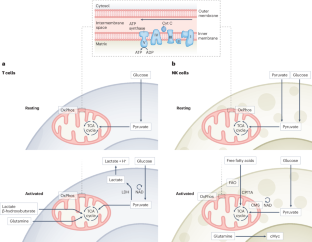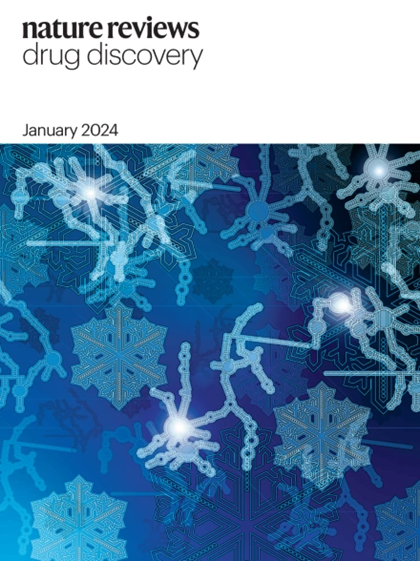Targeting metabolic dysfunction of CD8 T cells and natural killer cells in cancer
IF 122.7
1区 医学
Q1 BIOTECHNOLOGY & APPLIED MICROBIOLOGY
引用次数: 0
Abstract
The importance of metabolic pathways in regulating immune responses is now well established, and a mapping of the bioenergetic metabolism of different immune cell types is under way. CD8 T cells and natural killer (NK) cells contribute to cancer immunosurveillance through their cytotoxic functions and secretion of cytokines and chemokines, complementing each other in target recognition mechanisms. Several immunotherapies leverage these cell types by either stimulating their activity or redirecting their specificity against tumour cells. However, the anticancer activity of CD8 T cells and NK cells is rapidly diminished in the tumour microenvironment, closely linked to a decline in their metabolic capacities. Various strategies have been developed to restore cancer immunosurveillance, including targeting bioenergetic metabolism or genetic engineering. This Review provides an overview of metabolic dysfunction in CD8 T cells and NK cells within the tumour microenvironment, highlighting current therapies aiming to overcome these issues. CD8 T cells and natural killer (NK) cells play a key role in cancer immunosurveillance. However, their anticancer activity is rapidly diminished in the tumour microenvironment, associated with a decline in their metabolic function. This Review provides an overview of metabolic programmes in CD8 T cells and NK cells, discusses the dysfunction that can occur in cancer, and assesses therapeutic strategies to overcome this.


靶向CD8 T细胞和自然杀伤细胞在肿瘤中的代谢功能障碍
代谢途径在调节免疫反应中的重要性现已得到充分确立,并且正在绘制不同免疫细胞类型的生物能量代谢图。CD8 T细胞和自然杀伤(NK)细胞通过其细胞毒性功能和细胞因子和趋化因子的分泌参与肿瘤免疫监视,在靶标识别机制中相互补充。几种免疫疗法通过刺激这些细胞的活性或重定向它们对肿瘤细胞的特异性来利用这些细胞类型。然而,CD8 T细胞和NK细胞的抗癌活性在肿瘤微环境中迅速降低,这与它们的代谢能力下降密切相关。已经开发了各种策略来恢复癌症免疫监视,包括靶向生物能量代谢或基因工程。本文综述了肿瘤微环境中CD8 T细胞和NK细胞的代谢功能障碍,重点介绍了目前旨在克服这些问题的治疗方法。
本文章由计算机程序翻译,如有差异,请以英文原文为准。
求助全文
约1分钟内获得全文
求助全文
来源期刊

Nature Reviews. Drug Discovery
医学-生物工程与应用微生物
CiteScore
137.40
自引率
0.30%
发文量
227
期刊介绍:
Nature Reviews Drug Discovery is a monthly journal aimed at everyone working in the drug discovery and development arena.
Each issue includes:
Highest-quality reviews and perspectives covering a broad scope.
News stories investigating the hottest topics in drug discovery.
Timely summaries of key primary research papers.
Concise updates on the latest advances in areas such as new drug approvals, patent law, and emerging industry trends and strategies.
 求助内容:
求助内容: 应助结果提醒方式:
应助结果提醒方式:


